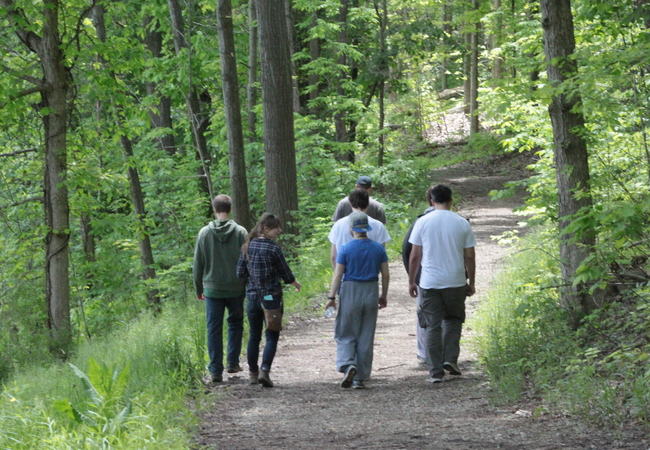June 9, 2025
Resilience and Physical Activity
By Sami Petty, MSN, APRN, PMHNP-BC, Consulting Nurse Practitioner
At Hopewell, we witness daily how the simple rhythm of physical activity, walking the trails, tending the garden, and mucking stalls, can bring about powerful shifts in mood, mindset, and mental resilience. Science is catching up to what farmers and healers have long known: moving our bodies helps us feel stronger, not just physically, but emotionally, mentally, and spiritually.
In a world that often feels overwhelming, building resilience – the ability to recover from stress, adapt to challenges, and stay grounded through life’s ups and downs – is more important than ever. For individuals living with serious mental illness, resilience is not just a nice idea, it’s a vital part of healing and recovery. Physical activity is one of the most accessible and effective tools for strengthening one’s own resilience.
When we engage in physical movement, several powerful things occur in the brain: feel-good chemicals are released, stress hormones are reduced, and cognitive function improves.
Feel-good chemicals are released: Exercise boosts endorphins, dopamine, and serotonin neurotransmitters that improve mood and reduce anxiety.
Stress hormones are reduced: Physical activity helps regulate cortisol, the body’s primary stress hormone, keeping us from getting stuck in fight-or-flight mode.
Cognitive function improves: Regular movement increases blood flow to the brain, improving focus, memory, and executive functioning. This is especially important for people with serious mental illness who may experience cognitive challenges as part of their condition.
Beyond the science, physical activity helps people reconnect with their bodies, build self-esteem, and feel a sense of accomplishment. At Hopewell, these benefits are multiplied when movement is meaningful, exemplified by caring for animals, harvesting vegetables, or simply walking on the trails. Whether it’s feeding chickens, vacuuming the main house or collecting maple syrup, every act of movement has a purpose. This physical engagement is about being present and connected to our surroundings. This heightened body awareness and connection to the environment enhance resilience and support stronger mental health.
Call to action: How can you support movement and resilience?
- Start small: A short walk, sweeping the porch, or stretching in the morning can make a difference.
- Choose purposeful activities: Tasks that feel meaningful, like gardening, cooking, or caring for a pet, engage the body and mind.
- Make it social: Movement is more enjoyable when shared. Invite others to join in a walk or help with a project.
- Connect it to nature: Whenever possible, move outdoors. Fresh air and natural surroundings amplify the mental health benefits.
At Hopewell, we’re not just growing food, we’re growing resilience. Through daily, grounded movement in nature, our residents are rediscovering their own strength, one step at a time. Wherever you are, remember movement matters. Not just for the body, but for the mind and spirit, too.
Back to Blog
